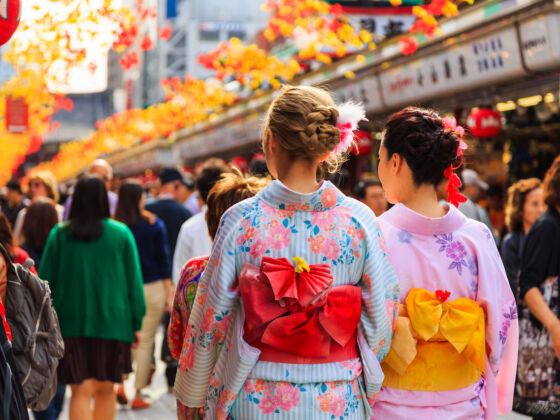South Africa, Canada, Brazil, the UK… no matter where you came from originally, once you’re in Japan, you’re part of the expat community. While there’s no doubt different nationalities and races can have vastly different experiences in Japan –- the visa and job application process alone should tell you that, not to mention finding housing –- there is a loose sense of camaraderie among the expat community in a country that’s 98-99% Japanese citizens. Even with the idea of Japanese as a race slowly breaking down with the rise of foreign residents marrying Japanese and having children, it takes effort on both sides to stop thinking of everyone as “us” and “them.” It can be hard, though, to break into such a tight-knit clique — there are some things expats in Japan can get pretty snobby about.


1. How much time they’ve spent in Japan.
At a certain level, this makes sense; you’ve spent more time in the country, therefore you can reasonably expect you know more about life in Japan than the boy from Alabama who just arrived six months ago. Well, that sounds great in theory. In actuality, that guy was fluent in Japanese before coming into the country and was able to integrate into the community years ahead of other foreign residents who had to deal with more culture shock, language barriers, and difficulties making friends.
When anyone who appears to be new challenges someone who’s been around, the discussion can sometimes turn into full-on condescending remarks, e.g. “Oh, you’ve only been here three years? Just stick around for twenty and you’ll see what I mean.”
2. Where they’ve been, what they’ve seen.
This isn’t unique to expat life in Japan. Many travelers tend to be a little competitive over where they’ve been relative to their age. In Japan, mentioning that you’ve visited a site like Mt. Fuji is practically cliché, and brings up discussions of other less touristy mountains close to better hot springs. Gotta catch ‘em all.
3. How much Japanese you speak.
I know someone who’s been in Japan for four years and can barely function in everyday Japanese. On the other hand, I also know expats who knew nothing when arriving two years ago and are now ready to take the JLPT2. It’s not so much how quickly people learn a new language or when (before arriving, or once in the country), but how they use it. I’ve had a few “friends” who jumped into situations — ordering at a restaurant, reserving a karaoke booth — by assuming their language skills were better than mine. Removing the incentive to speak Japanese by having a friend who feels there’s no point in you causing everyone an inconvenience by muddling through your poor language skills won’t help either person.
4. What Japanese habits you have.
Do you instinctively bow? Do you eat Japanese food for every meal? Does your apartment have a futon, or a bed? Do you watch anime, or stick with your US Netflix account? Everyone understands there’s a time for a break to watch Hollywood movies and order Domino’s, but your habits in Japan set you apart. There are quite a few expats who sneer at those who aren’t as integrated as they think they are.
5. Who your friends are.
Do you hang out with JETs who are fresh off the boat, or do you have only Japanese friends? Who do you want to date? This isn’t so much something to be snobbish about as an indication of what you want to make of your Japanese experience. You can still have friends working as ALTs if you’re not one yourself and enrich yourself culturally, but maybe you’re just looking to drink and party for three years straight. By the same token, those who shy away from the expat community and make the effort to maintain friendships with Japanese people aren’t saying they’re better than you; they’ve just outgrown you.